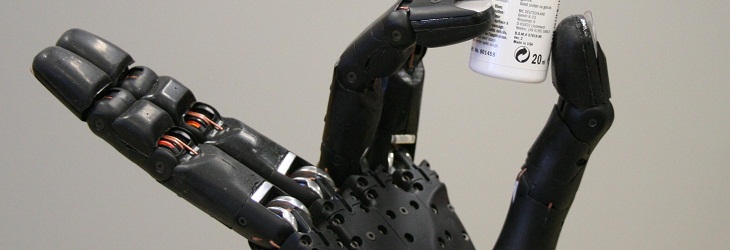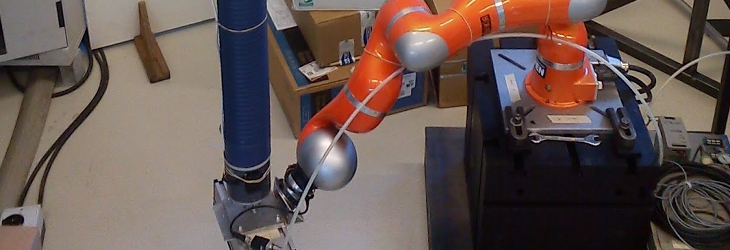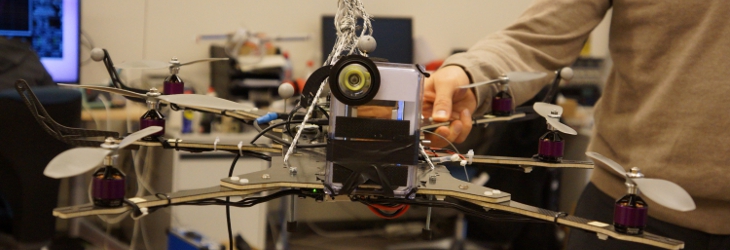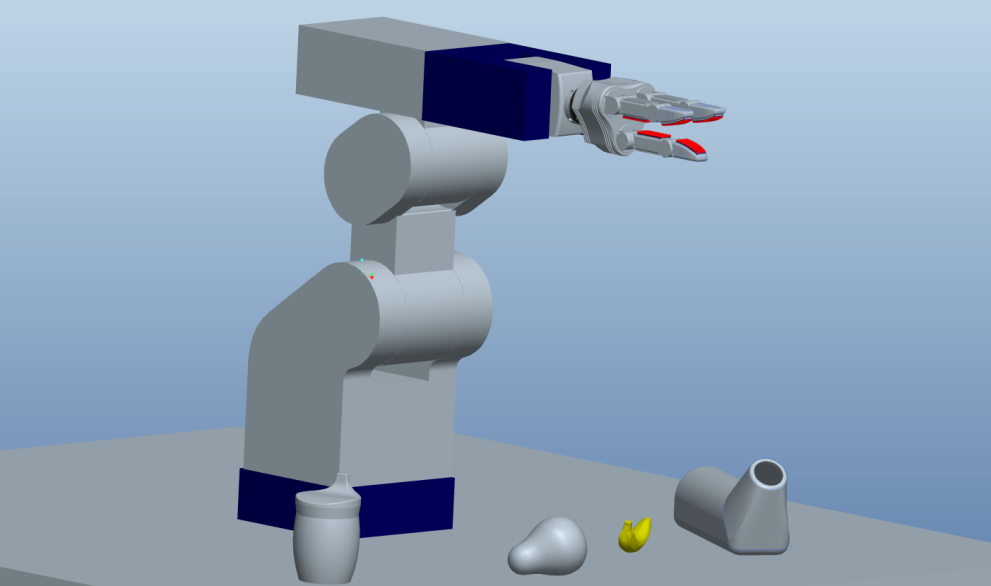BRACOG - Brain-Controlled Grasping
Every year, strokes and traumatic injuries cause severe motor handicaps in more than 15 million people worldwide (Atlas of Heart Disease and Stroke, WHO, 2004). As a result, many of these patients will be dependent on other people's help for the rest of their lives for performing everyday tasks. To provide those patients with some level of physical independence, our research aims at developing a robotic arm they can use to grasp and manipulate common objects, controlled by voluntarily changing their brain activity. For the future, our research on brain controlled grasping (BRACOG) aims to enable patients with severe upper limb motor handicaps to perform essential motor tasks, such as eating and drinking autonomously. The prosthesis we aim to develop will provide them with some independence and relief from the need of other people's help. Fraunhofer IFF and the Clinic of Neurology of the Otto-von-Guericke-University will develop a demonstrator which is expected to be the first robot controlled by thoughts that is able to grasp an unknown object. In the early project stage, for safety reasons, the experiment will be entirely executed in Virtual Reality. Thus, before the real robot used, all processes will have been simulated and evaluated in an immersive 3D visualization.
| |
| Size | Modified | |
| geometry model.png | 100 KB | 2011/10/18 |









